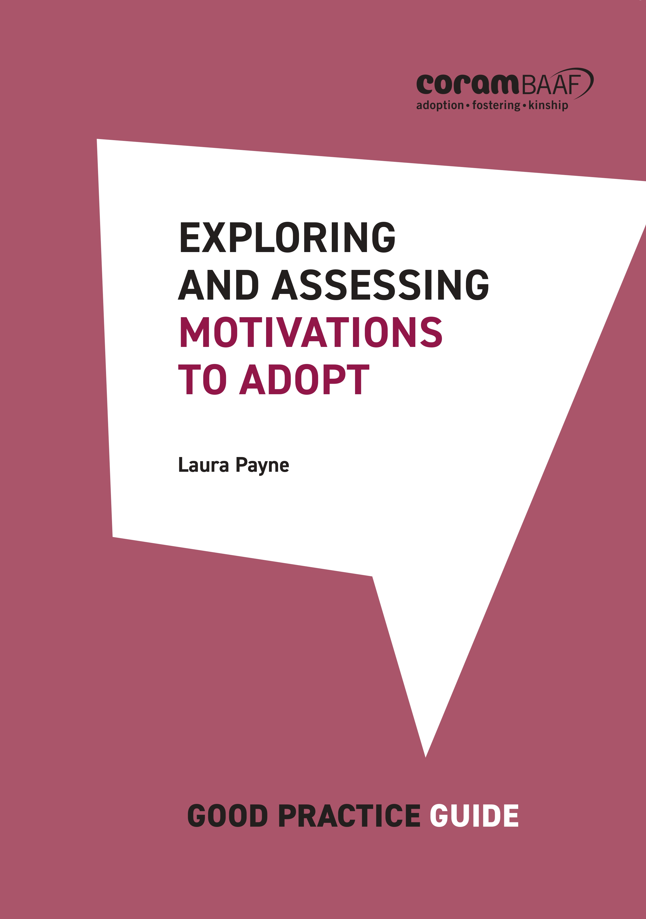
Exploring and assessing motivations to adopt
£24.95
What motivates applicants is an important part of assessment, as it can be key to future adoption success. But do social workers understand how fertility treatment can affect applicants? Are workers and panel members aware of possible unconscious bias when assessing LGBTQ+ or single applicants? What should workers consider when assessing those wanting to adopt for environmental or religious reasons?
This practice guide helps social workers better understand and assess motivation, by examining four groups: couples who have experienced fertility issues, LGBTQ+ applicants, single applicants, and those for whom adoption is their first choice. It will empower workers to explore various motivations, how they may affect adoption success or support needs, and how to discuss often sensitive subjects with applicants – with an eye to providing thoughtful and analytical assessment. It also explores the key importance of applicants’ expectations of parenthood and how these can affect their adoption journey.
Case studies and the experiences of social workers and adopters underpin the guide. The strengths and risk-based approach helps assessors to explore and make balanced judgements on what applicants bring to adoption. Tools to help with assessment are included.
This guide provides vital practice advice for all social workers, social work managers and panel members who may be involved with assessing and/or considering applicants to adopt.
Read our free chapter
Every month we release a free chapter from one of our bestselling publications. For April 2025, we are sharing the first chapter from our Exploring and assessing motivations to adopt Good Practice Guide.
Read the introduction and Chapter 6 on 'The relationship between motivations and expectations'. Did you know that discussing a CoramBAAF publication with a colleague counts towards your CPD?
Listen to our author interview
In this episode, we dive into the insights from our latest Good Practice Guide, Exploring and assessing motivations to adopt. Jo Francis, CoramBAAF’s Publishing Manager, meets with the guide's author, Laura Payne.
AVAILABLE IN EBOOK AND HARD COPY
Questions about eBooks? Check out our FAQs
A 10% bulk discount will be applied at the checkout for orders of 10 copies or more on this title.
